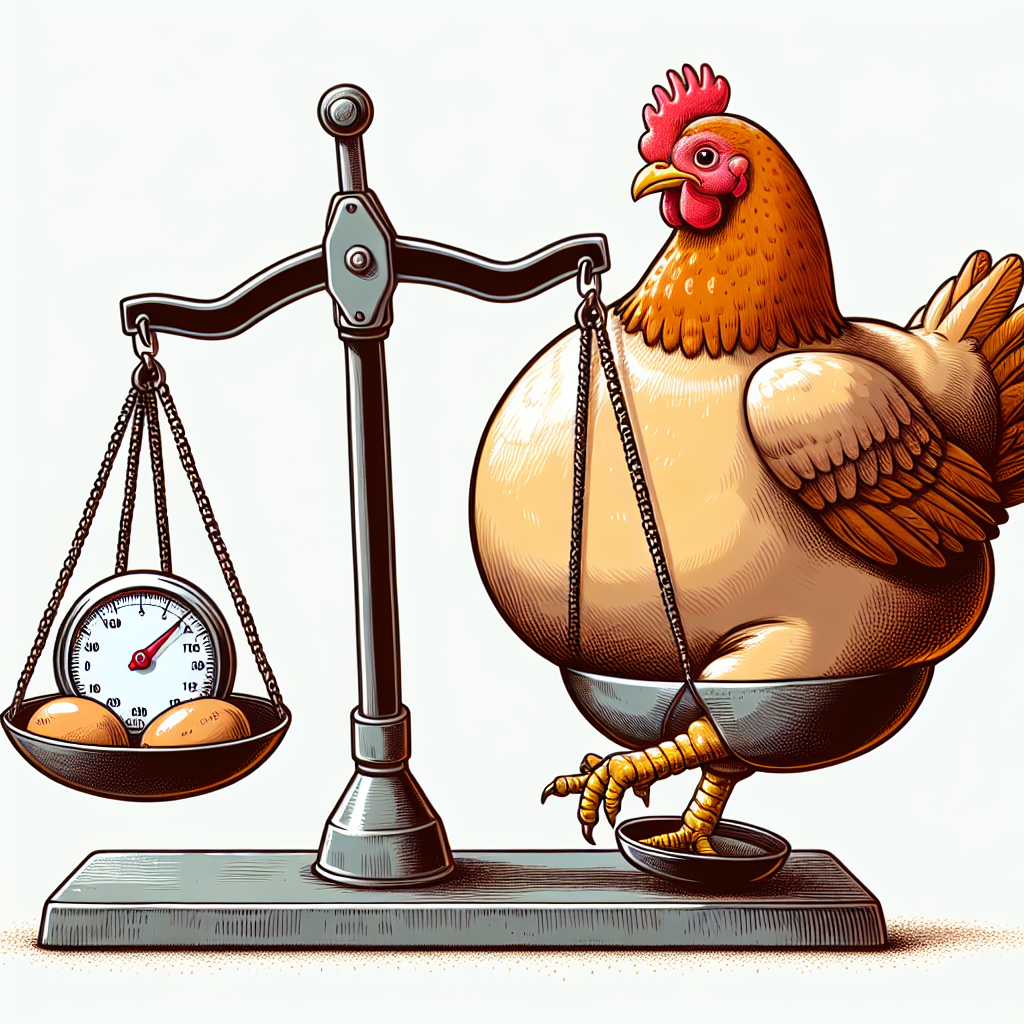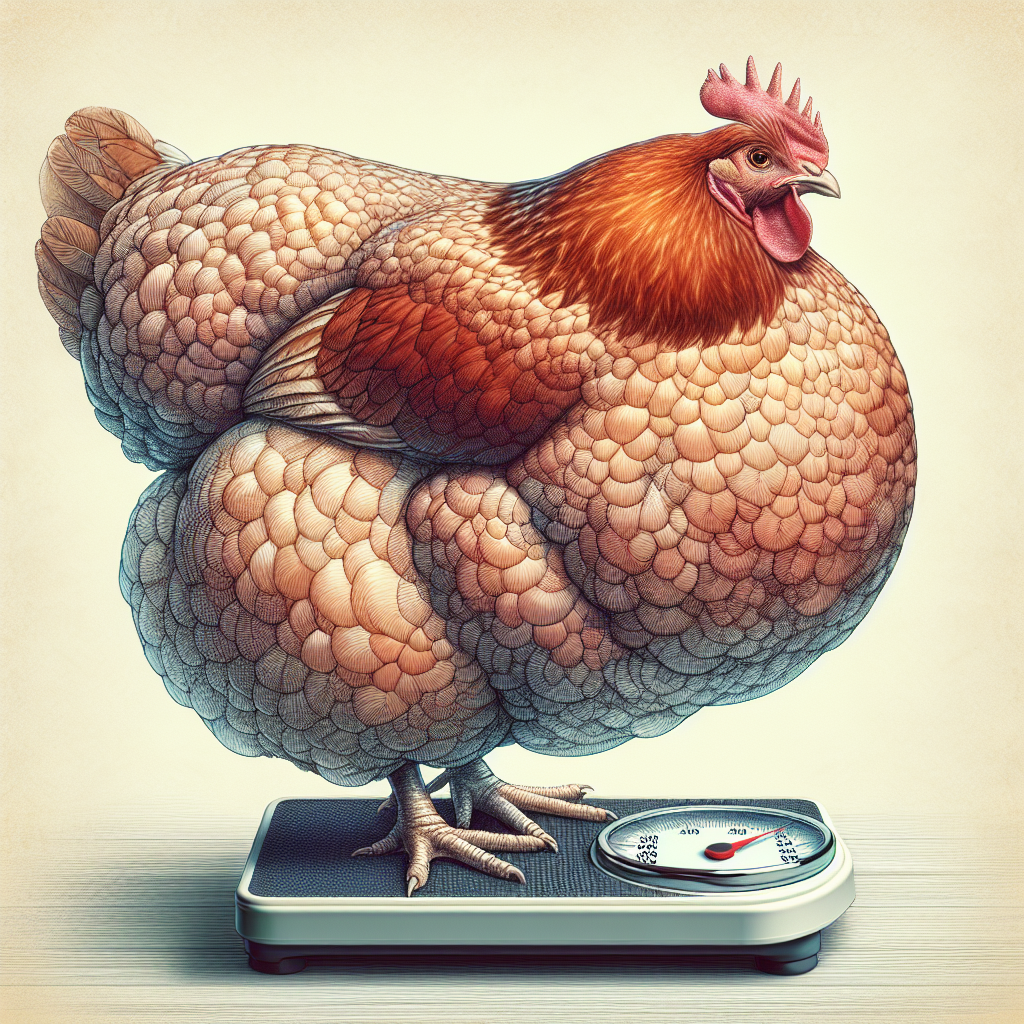You may be surprised to learn that overfeeding can indeed lead to health issues in chickens. While it may be tempting to provide your feathered friends with an abundance of food, it is important to understand the potential consequences. Overfeeding can lead to obesity, which puts a strain on the chicken’s joints and can lead to mobility issues. Additionally, excessive weight gain can increase the risk of heart and liver problems, and can even shorten the lifespan of the birds. So, while it is important to ensure your chickens are well-fed, it is equally important to do so in moderation.
Potential Health Issues in Overfed Chickens
Overfeeding chickens can have significant negative consequences for their health. Similar to humans, chickens can suffer from a range of health issues if they are consistently overfed. It is important for poultry owners to be aware of these potential health problems and take proactive measures to prevent them. Some of the most common health issues that can arise from overfeeding chickens include obesity, heart disease, fatty liver disease, skeletal problems, and reduced egg production.
Obesity in Chickens
Causes of Obesity
Obesity in chickens is mainly caused by a combination of excessive calorie intake and insufficient exercise. When chickens consume an excessive amount of food, particularly high-calorie and low-nutrient options, their bodies store the excess energy as fat. Additionally, lack of physical activity further contributes to weight gain in chickens.
Symptoms of Obesity
Identifying obesity in chickens can be quite straightforward. One of the most obvious signs is an overall increase in body mass, making the chicken appear larger and rounder than usual. Obese chickens may also have difficulty walking or moving around, exhibit labored breathing, and have reduced energy levels.
Health Consequences
Obesity can lead to a variety of health complications in chickens. One of the most significant risks is the development of metabolic disorders such as diabetes. Obese chickens are also more prone to joint and skeletal problems, as their excess weight puts additional stress on their bones and joints. Furthermore, obese chickens are at a higher risk of reproductive issues, including reduced egg production.
Heart Disease in Chickens
Causes of Heart Disease
Overfeeding chickens with a diet that is high in unhealthy fats and lacking in essential nutrients can lead to the development of heart disease. Consuming excessive amounts of fat can raise cholesterol levels and contribute to the buildup of plaque in the arteries, increasing the risk of heart-related issues.
Symptoms of Heart Disease
Detecting heart disease in chickens can be challenging, as the symptoms may not be as noticeable as in humans. However, chickens with heart disease may exhibit signs such as shortness of breath, lethargy, and decreased appetite. They may also have difficulty performing normal activities, such as walking or flying.
Health Consequences
Heart disease can have severe consequences for the overall health and wellbeing of chickens. It can decrease their quality of life and significantly impact their ability to engage in normal daily activities. In severe cases, heart disease can even lead to premature death.
Fatty Liver Disease in Chickens
Causes of Fatty Liver Disease
Overfeeding chickens with excess carbohydrates, particularly from low-quality or high-calorie feed, can contribute to the development of fatty liver disease. In this condition, the liver becomes overloaded with fat deposits, impairing its function and potentially leading to further health issues.
Symptoms of Fatty Liver Disease
Fatty liver disease often presents with symptoms such as weight gain, swelling or enlargement of the abdomen, and a dull or discolored comb. Affected chickens may also have difficulty breathing, exhibit decreased activity levels, and experience a decline in egg production.
Health Consequences
If left untreated, fatty liver disease can lead to severe health consequences in chickens. It can impair liver function, resulting in the accumulation of toxins in the body and impacting overall metabolism. In advanced stages, fatty liver disease can be fatal for chickens.
Skeletal Problems in Chickens
Causes of Skeletal Problems
Overfeeding chickens, particularly with diets high in calcium and phosphorus, can cause skeletal problems. Excessive consumption of these minerals can disrupt the delicate balance necessary for proper bone formation, leading to conditions such as osteoporosis or deformities in the skeletal structure.
Symptoms of Skeletal Problems
Chickens with skeletal problems may display signs of lameness, difficulty walking, or an abnormal posture. They may exhibit pain or discomfort when moving and may be more prone to fractures or broken bones.
Health Consequences
Skeletal problems can severely impact a chicken’s ability to move and engage in normal activities. It can lead to chronic pain and reduced quality of life. Additionally, chickens with skeletal problems may require special care and attention to manage their condition effectively.
Reduced Egg Production in Chickens
Causes of Reduced Egg Production
Overfeeding chickens can disrupt their reproductive systems and lead to a decrease in egg production. An imbalanced diet, overconsumption of certain nutrients, and excess body weight can all contribute to reduced egg laying in chickens.
Symptoms of Reduced Egg Production
The most apparent symptom of reduced egg production in chickens is a noticeable decline in the number of eggs laid per week. Chickens may also display changes in their reproductive behavior, such as decreased or irregular nesting behavior.
Health Consequences
Reduced egg production can impact the overall profitability and sustainability of a chicken flock. Additionally, it may indicate underlying health issues that need to be addressed to ensure the long-term wellbeing of the chickens.
Preventing and Managing Overfeeding in Chickens
Preventing and managing overfeeding in chickens is crucial to maintain their health and wellbeing. Here are some key strategies to help poultry owners prevent excessive weight gain and associated health problems:
Proper Diet and Feeding
Providing a well-balanced diet that meets chickens’ nutritional needs is essential. This includes offering feed formulated specifically for their age and breed. A balanced diet ensures that chickens receive the necessary nutrients without excess calories.
Monitoring Portion Sizes
Controlling portion sizes is vital to prevent overfeeding. This involves measuring the appropriate amount of feed for each chicken and avoiding leaving excessive feed available for continuous snacking.
Encouraging Exercise
Promoting physical activity in chickens is crucial for maintaining a healthy weight. Allowing chickens access to spacious outdoor areas or providing them with toys and structures that encourage movement can help ensure they engage in regular exercise.
Regular Veterinary Check-ups
Regular veterinary check-ups can help identify potential health issues early on, allowing for appropriate intervention and management. A veterinarian can provide guidance on maintaining optimal weight, adjusting diets, and addressing any health concerns specific to the chickens.
By being aware of the potential health issues associated with overfeeding and implementing preventative measures, poultry owners can ensure the long-term health and happiness of their chickens. Ultimately, a balanced diet, proper portion control, regular exercise, and veterinary care are key factors in maintaining the overall wellbeing of chickens.




